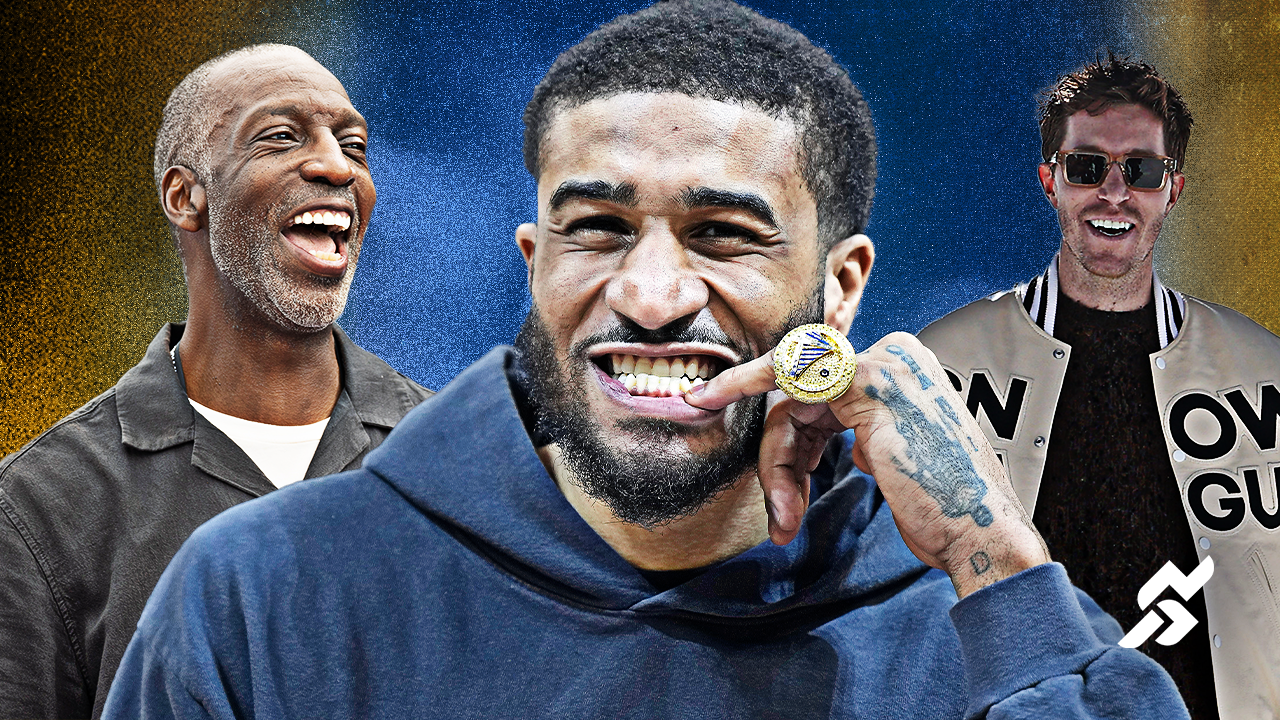
Gary Payton II was never much of a skateboarder himself. He was more comfortable skiing and snowboarding growing up in Seattle, where his father starred in the NBA for over a decade. But he was later introduced to skateboarding culture after moving to Las Vegas for his high school years, where he sparked friendships within the skater community.
Those relationships will serve the NBA veteran well as he provides a platform he believes can boost the careers of skaters who often have been underpaid amid declining popularity around the action sport. Payton is the co-founder of Skate Board Association (SBA), a new co-ed, equal pay pro skateboarding league based in Big Bear Lake, Calif., that will begin next year.
The undrafted free agent turned NBA champion, who became a fan favorite in the Bay Area, says he resonates with skaters who have struggled to find their footing. After all, Payton started his college career as a JUCO product and later spent six years in the NBA’s development league never knowing if he would get a steady NBA roster spot. His defensive effort and ability to play well above his size—the Warriors have occasionally used him in a big man role despite him being 6-foot-2—helped him crack Golden State Warriors‘ rotation.
“Most of that time I was feeling unwanted, unappreciated of what I brought to the sport,” Payton, who played the 2024-25 season with the Warriors and is currently an NBA free agent, said in a video interview. “I think a lot of the skateboarders feel the same way, just being used for their talent and not being paid right… I want to be part of changing that.”
Skate Board Association is the latest athlete-led pro sports league trying to break through a crowded entertainment landscape. It has ambitions of being a go-to destination for top skaters where they can receive an equity stake and six-figure payouts while also collecting checks from sponsors and other commercial partners. SBA will face competition with the X Games League, a Nyjah Houston-founded skateboarding league launching next summer. The SBA founders embrace the challenge but remain cognizant of other startup leagues, including skateboard ventures, that have struggled to maintain themselves financially.
That’s why co-founder Sheldon Lewis says it’s imperative to have SBA’s training complex and media hub at a fixed location in Big Bear Lake and not travel from city to city during the inaugural season to keep operating costs manageable. Backed by private investors, the venture is funded through the first two seasons, but it remains in the fund raising process.
“We also want to give major [sponsor] brands an organic pathway to participate in the sport the way we know they want to,” co-founder Royce Campbell said in a video interview. “As what the NBA is to basketball and NFL is to football, we will be that to skateboarding.”
Others athlete-led leagues also started with high confidence, but like most startups have faced challenges. Grand Slam Track, the league founded by four-time Olympic gold medal sprinter Michael Johnson, is in danger of not hosting a second season as it still hasn’t paid athletes and vendors in full for this year’s inaugural season. The series, which aimed for notable payouts to its athletes in non-Olympic years, originally said it had $30 million in commitments.
“It comes down to financial discipline and prioritization of products,” Snow League CEO Omer Atesmen said in a phone interview. “You can’t do everything under the sun, so you have to place the right bets in terms where you spend your resources and time.”
Snow League, a snowboarding and freeskiing league founded by three-time Olympic gold medalist Shaun White, is also looking to build a sustainable business while aiming to give its athletes a platform to extend their careers and reap the benefits of rising prize purses.
Atesman says it’s critical for emerging leagues like his to communicate with the athletes on their needs and wants while also making sure that the league can thrive within five years. Snow League, which has a media rights deal with NBC Sports and is backed by venture capital firms like Left Lane Capital, is coming off its inaugural season with hopes one day of creating an expanded global schedule with even stronger payouts.
While there’s a bevy of newer U.S. sports leagues, Atesman maintains that each venture will have its own playbook on growing its audience and consumers. Supported by passionate fans and communities, growth could depend more on revenue generated through media rights or ticket and merchandise sales.
Unrivaled, the women’s 3-on-3 basketball league founded by WNBA stars Breanna Stewart and Napheesa Collier, holds less than 900 fans at the league’s Wayfair Arena home near Miami. But that hasn’t stopped the two-year-old winter league from growing its valuation to $340 million.
Like the Snow League, Unrivaled continues to tinker with its player accommodations after listening to feedback from the inaugural season last year. The alt-league plans to provide more development staff and trainers for its athletes while expanding the on-site facility.
“Always be willing to evolve,” Atesman said. “Everyone on the team should recognize that everything you’re doing is [hopefully] going to get better over time… I think if you have that mentality, while focused on resource [allocation], then you’re going to run a good business.”

